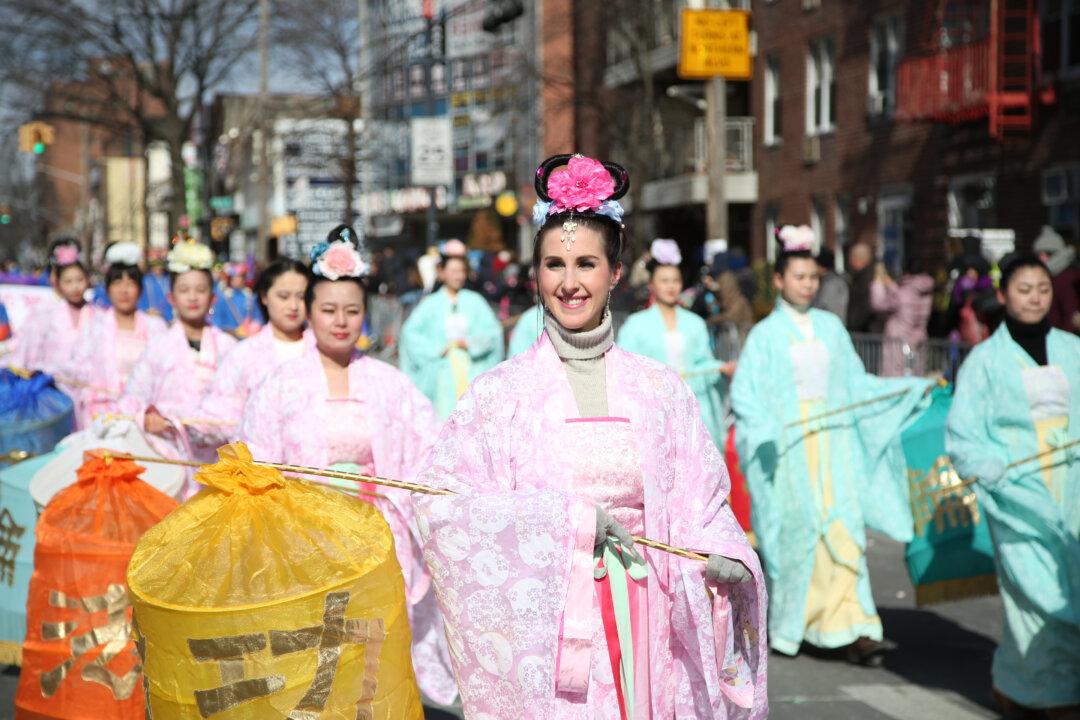NEW YORK—Harsh wind chills on Feb. 13 may have thinned the crowds on the streets for this year’s Lunar New Year parade in Flushing, but many still gathered to watch the colorful procession of floats and performers—even if it was from behind the windows of Chinatown shops and malls.
Performers from various organizations and ethnic backgrounds, primarily Chinese- and Korean-American, stood up to the 11-degree weather with dragon and lion dances, drumming, the graceful steps of women depicting heavenly maidens, and even a full marching band.
Since 1996, Flushing Chinatown has celebrated the Asian holiday season with New Year parades of growing scale.

The Tianguo marching band takes part in the 2016 Flushing Lunar New Year parade. Dai Bing/Epoch Times




